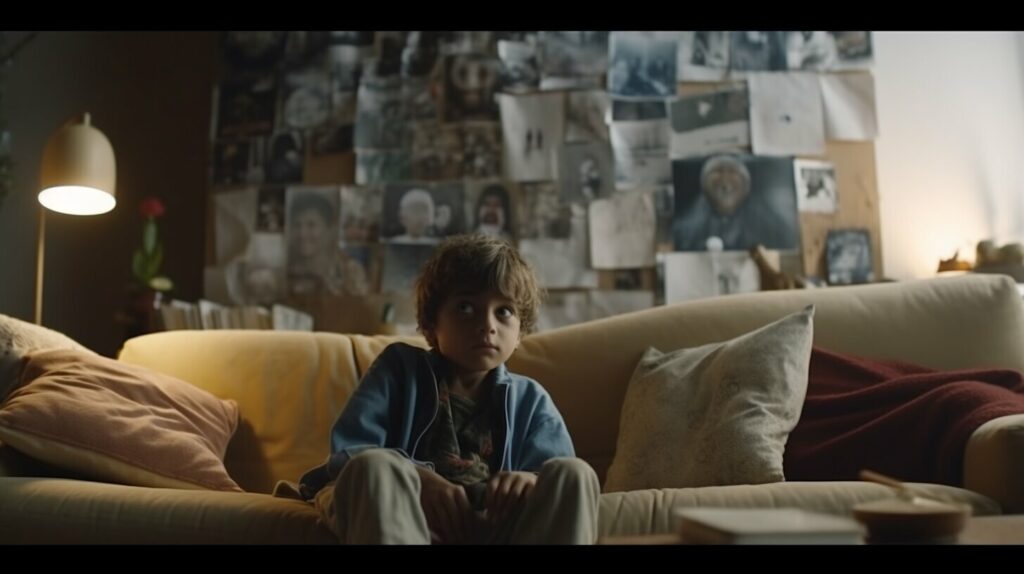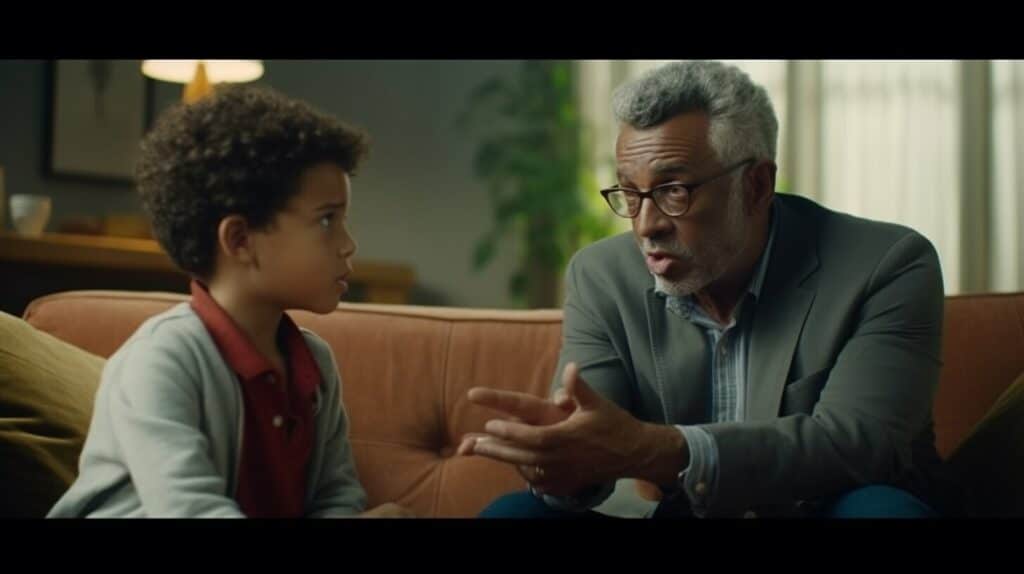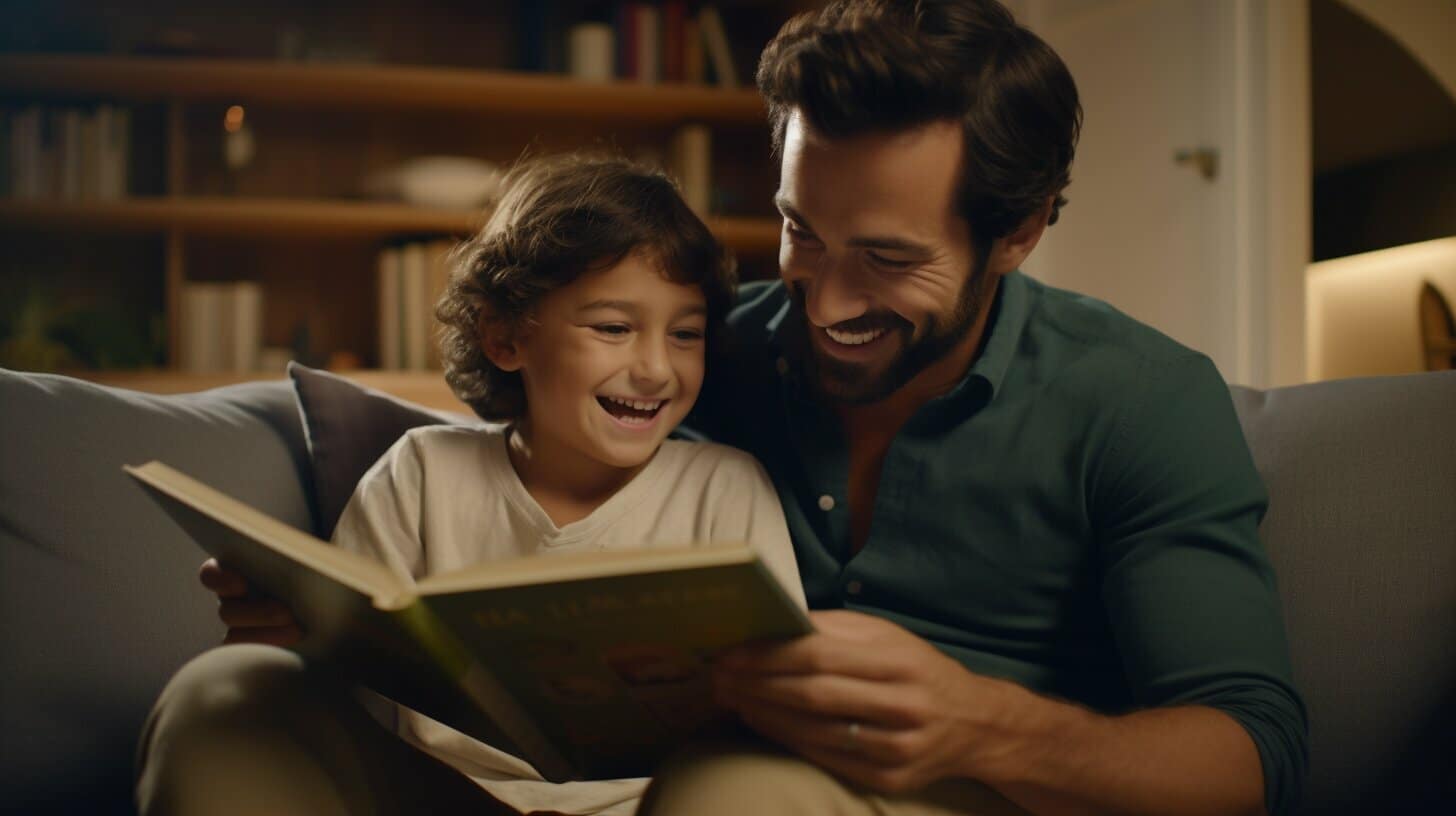It can be difficult to explain to a child why a grandparent has decided to cut all ties with the family. It’s a delicate topic that requires compassion and clarity. However, it’s important to address this situation with your child to help them understand and cope with the situation. Here are some tips to help you navigate this conversation:
- Be honest with your child while keeping their age and understanding in mind.
- Choose an appropriate time and place to have the conversation, creating a safe and comfortable environment for them to express their feelings.
- Reassure your child that the grandparent’s decision to cut ties is not their fault.
- Encourage open communication and questions, and validate and normalize their feelings.
- Seek support from trusted adults or professionals.
By approaching the conversation with empathy, honesty, and ongoing support, you can help your child navigate this challenging time.
Key Takeaways:
- Be honest and age-appropriate when explaining the situation to your child.
- Choose a safe and comfortable environment for the conversation.
- Reassure your child that it’s not their fault and encourage open communication.
- Validate and normalize their feelings and seek support from trusted sources.

Understanding the Impact of Grandparent Distancing
If your child has experienced grandparent distancing, it is essential to understand the impact it can have on them. Children may feel a range of emotions, including sadness, confusion, or anger. They may struggle to understand why their grandparent has chosen to cut ties, and they may blame themselves.
It is important to communicate with your child and provide a safe space for them to express their feelings. Whether this is through talking to you, writing in a journal, or seeking professional help, it is crucial to let them know that their emotions are valid and that they are not alone.
As a parent, it can be challenging to see your child go through emotional pain. However, it is important to remember that these feelings are a natural response to the situation. By providing support and a listening ear, you can help your child navigate through this challenging time.
It is also crucial to keep in mind that children may react differently based on their age and individual personalities. Younger children may struggle to articulate their emotions, while older children may have a better understanding of the situation but may also experience more significant emotional turmoil.
The impact of grandparent distancing can extend beyond your child’s emotional well-being. It may affect family dynamics, holidays, and traditions. It is important to be mindful of these changes and communicate with your child about any changes they might expect.

“The pain of parting is nothing to the joy of meeting again.” – Charles Dickens
Choosing the Right Time and Place for the Conversation
When discussing a grandparent cutting all ties with your child, it is important to choose the right time and place for the conversation. This can help ensure that your child feels safe and comfortable to express their feelings and ask questions.
Find a time when you and your child are both relaxed and have minimal distractions. It may be helpful to schedule a specific time for the conversation. This way, your child knows what to expect and can mentally prepare.
Consider the location as well. Choose a quiet and private space where your child feels comfortable. It may be helpful to choose a neutral location, such as a park or restaurant, to avoid any association with negative emotions.
Remember to approach the conversation with compassion and understanding. Let your child know that you are there to support them and that it is okay to feel upset or confused. This can help create an open and honest dialogue, allowing your child to share their thoughts and feelings with you.

By choosing the right time and place for the conversation, you can help set the tone for a productive and supportive discussion. Remember to listen actively and respond with empathy, validating your child’s feelings and providing ongoing support throughout this difficult time.
Honesty and Age-Appropriate Explanation
When explaining to your child about a grandparent cutting ties, it’s crucial to be honest with them while keeping their age and understanding in mind. You may be tempted to shield them from the details of the conflict, but it’s important to give them a clear explanation of what’s happening.
Use language that is appropriate for their age and comprehension level. You don’t want to overwhelm them with too much information or confuse them with vague explanations. Be truthful about the situation without placing blame on anyone.
For younger children, you can explain that there was a disagreement between the adults in the family that cannot be resolved at the moment. For older children, you can provide more specific details about the conflict while still maintaining a neutral stance.
Remember that honesty and transparency will help your child feel respected and valued. They will appreciate being included in the conversation and having their questions answered truthfully.

Emphasizing that it is Not Their Fault
It is important to reassure your child that the decision made by their grandparent to cut ties is not their fault. Children may feel a sense of responsibility for the actions of others, and it is crucial to help them understand that adults make their own choices and are responsible for their own behavior.
It may be helpful to explain to your child that sometimes people have disagreements or conflicts that cannot be resolved, and this can lead to relationships ending. However, these types of situations are not the fault of any one person, and it is not their job to fix them.
Remember, just because someone is family does not mean they are always right or always kind. People make mistakes and sometimes those mistakes lead to the end of relationships.”
Reinforcing this message can help your child avoid feelings of guilt or blame, and allow them to process their emotions in a healthy way.

Encouraging Open Communication and Questions
It’s important to create a supportive environment where your child feels comfortable asking questions and expressing their emotions. Encourage open communication by actively listening to your child and answering their questions honestly. Let them know that it’s okay to feel sad, confused, or angry about the situation.
You can also provide opportunities for your child to express their feelings through activities such as art, journaling, or talking to a trusted friend or family member. This can help them process their emotions in a healthy way.
Remember to validate your child’s feelings and let them know that their emotions are normal. Avoid dismissing or minimizing their feelings, as this can make them feel like their emotions are not important.
Encouraging open communication and questions can help your child feel supported and understood during this challenging time.

Validating and Normalizing Feelings
It is essential to validate your child’s feelings and emotions during this difficult time. Let them know that it is okay to feel sad, confused, angry, or any other emotion that may arise. Emphasize that their feelings are valid and that it is normal to experience a range of emotions.
Encourage your child to express their feelings and let them know that you are there to listen and support them. Avoid downplaying or dismissing their emotions, as this can make them feel unheard or invalidated.
“It’s understandable that you’re feeling upset about this. Your feelings matter, and I’m here to listen.”
It’s also important to normalize their emotions by letting them know that they are not alone. Explain that other families also experience conflicts and that it’s a natural part of relationships.
“It’s common for families to have disagreements and conflicts. It doesn’t mean that anyone is a bad person or that they don’t love each other.
By validating and normalizing their feelings, you can help your child feel heard, understood, and supported during this challenging time.

Seeking Support from Trusted Adults or Professionals
Dealing with family estrangement can be emotionally challenging, not only for your child but also for you as a parent. It’s okay to seek help and support from trusted adults or professionals who can guide you and your child through this difficult time.
You may consider reaching out to a family therapist, counselor, or social worker who can provide you and your child with the necessary emotional support and coping strategies. These professionals can help you and your child process the emotions and thoughts related to this situation while offering a safe and non-judgmental space for communication.
Remember, it’s essential to prioritize your own self-care and well-being as well. Seeking support from your own trusted loved ones or therapist can help you manage your own emotions as a parent and caregiver.
Remember that it’s okay to ask for help and support during this challenging time. Seeking support is an act of self-care and love for both you and your child.

Remember, seeking support can make a positive impact in your life and your child’s life. You don’t have to go through this alone.
Conclusion
In conclusion, explaining to your child about a grandparent cutting all ties can be a difficult and emotional experience. However, by approaching the conversation with compassion and clarity, you can help your child understand and cope with the situation.
Remember to choose the right time and place for the conversation, and to be honest while keeping your child’s age and understanding in mind. It is essential to emphasize that it is not their fault and to encourage open communication and questions.
Validating and normalizing their feelings can also be beneficial, and seeking support from trusted adults or professionals can provide ongoing help for both you and your child.
Overall, it is important to provide ongoing support and create a safe and supportive environment for your child to express their emotions. By doing so, you can help guide them through this difficult time and build a stronger relationship with them.

FAQ
Q: How do I explain to my child about a grandparent cutting all ties?
A: It is important to approach this conversation with compassion and clarity. Choose an appropriate time and place to have the discussion. Be honest with your child and explain the concept of family conflict in an age-appropriate manner. Reassure them that it is not their fault and encourage open communication and questions. Validate their feelings and seek support from trusted adults or professionals if needed.
Q: What is the impact of grandparent distancing on a child?
A: Grandparent distancing can have emotional consequences for a child. They may experience feelings of sadness, confusion, or anger. It is important to address this situation with sensitivity and help them cope with their emotions. Reassure them that adults make their own choices and they are not responsible for the actions of others.
Q: How do I choose the right time and place for the conversation?
A: Creating a safe and comfortable environment is crucial for this conversation. Choose a time when both you and your child can dedicate your full attention. Find a quiet and private space where your child feels comfortable expressing their feelings and asking questions.
Q: How do I explain the situation in an age-appropriate manner?
A: When explaining family conflict and broken relationships, consider your child’s age and understanding. Use simple and clear language that they can comprehend. Avoid blaming or badmouthing anyone involved and focus on the concept of adults making their own choices.
Q: How do I emphasize that it is not my child’s fault?
A: Reassure your child that the decision to cut ties is not their fault. Help them understand that adults have their own reasons for their actions and that they are not responsible. Validate their feelings and let them know that it’s okay to feel sad, confused, or even angry about the situation.
Q: How do I encourage open communication and questions?
A: Create a supportive environment where your child feels comfortable expressing their emotions and asking questions. Encourage them to talk about their feelings and listen attentively. Let them know that their thoughts and questions are valid and important.
Q: How do I validate and normalize my child’s feelings?
A: Validating your child’s feelings is important. Let them know that it’s normal to feel sad, confused, or angry in this situation. Assure them that their emotions are valid and that you are there to support them. Help them develop coping strategies to navigate their emotions.
Q: Where can I seek support for myself and my child?
A: It is crucial to seek support from trusted adults or professionals during this challenging time. Reach out to family, friends, or therapists who can provide guidance and understanding. There are also support groups and resources available to help you and your child navigate through grandparent estrangement.






